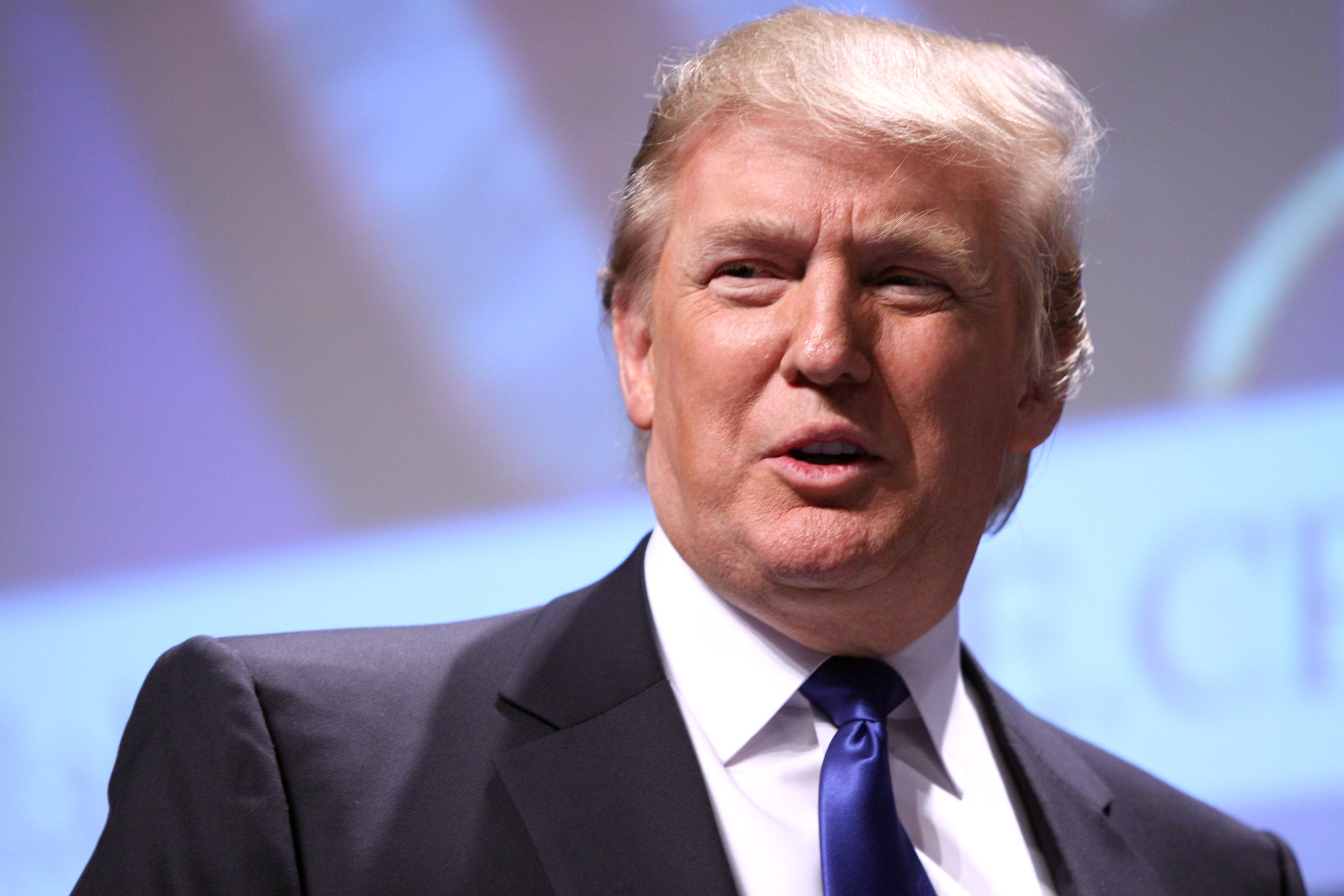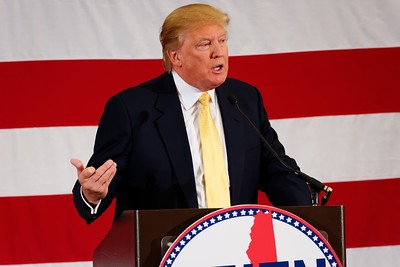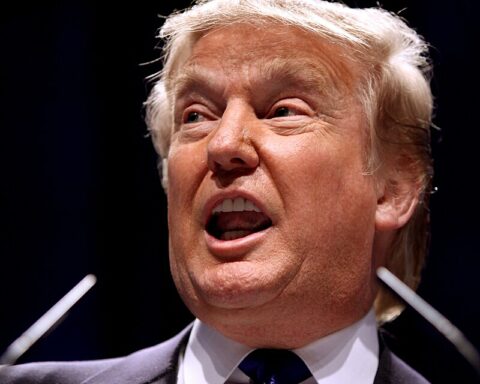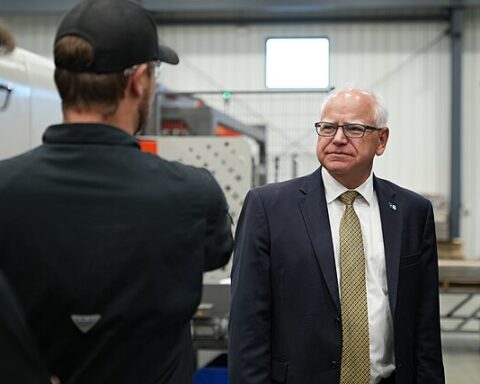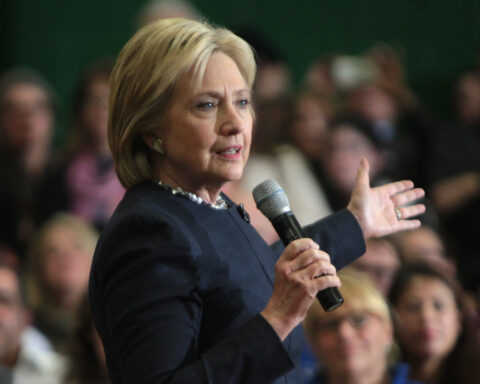President Trump issued a sweeping new proclamation on Friday, hitting companies that rely on foreign labor with a staggering $100,000 fee for each H-1B visa application.
The move throws a wrench into the hiring of international workers and sets up a new flashpoint between the White House and major corporations.
Trump signed the measure late Friday, tacking the massive charge onto existing visa costs that employers typically foot. The president portrayed the change as a bold strategy to push businesses toward investing in American talent.
“We need workers, we need great workers and this pretty much ensure that that’s going to happen,” Trump said as he unveiled the new policy.
US President Trump signs proclamation imposing $1,00,000 fee for H-1B visa applications pic.twitter.com/oUdgMXnUOV
— IndiaWarZone (@IndiaWarZone) September 20, 2025
White House press secretary Karoline Leavitt shared the news on X, by posting a link to the Bloomberg article with the caption, “Trump to Add New $100,000 Fee for H-1B Visas in Latest Crackdown.”
Commerce Secretary Howard Lutnick backed the president, arguing that the unprecedented fee will stop firms from spending money to train foreign workers and instead push them to develop the American workforce.
“Stop bringing in people to take our jobs, that’s our policy here,” Lutnick declared.
He added that large companies are already cooperating, noting discussions with them about the “gold card” program.
“If you’re going to train somebody, you’re going to train one of the recent graduates from one of the great universities across our land, train Americans,” Lutnick said at the White House.
The policy is expected to discourage foreign workers from entering the U.S., with the steep price tag serving as a barrier to those seeking legal employment opportunities.
Lock Them Up! Russiagate is reigniting…
Obama, Clinton, Comey, and Brennan are all on the hook!
CLICK HERE to demand Russiagate conspirators got to prison!
Congress created the H-1B system in 1990, making it the primary route for highly skilled foreign nationals to work in America.
According to U.S. Citizenship and Immigration Services, these visa holders often go on to pursue permanent residency, granting them long-term legal status.
H-1B visas are generally targeted at international specialists in fields such as technology.They last three years and can be extended up to six.
India has made up the lion’s share of H-1B visas in the past five years, with 155,205 out of 189,404 H-1B cases coming from the nation.
While employers see them as a pipeline for high-level talent, critics argue they drive down wages and displace American workers.
“What this proclamation will do is raise the fee that companies pay to sponsor H-1B applicants to $100,000,” a senior White House official explained.
“This will ensure that the people they’re bringing in are actually very highly skilled, and that they’re not replaceable by American workers.”
The official added that the change will “protect American workers, but ensure that companies have a pathway to hire truly extraordinary people and bring them to the United States.”
Alongside the proclamation, Trump ordered Labor Secretary Lori Chavez-DeRemer to begin a rulemaking process to overhaul wage levels for the H-1B program.
The Gold Card is here. pic.twitter.com/tSMsmcuViS
— The White House (@WhiteHouse) September 19, 2025
The move signals that the administration intends to further reshape how companies calculate pay for visa holders.
The president also unveiled a separate executive order on Friday, creating a new fast-track visa pathway.
This so-called “gold card” system would allow expedited approval, but only at a jaw-dropping cost: $1 million for individuals and $2 million for corporations. Trump likened it to the hefty bonuses given to professional athletes.
He acknowledged that the enormous fees would effectively filter applicants, drawing only the highest-level talent, while leaving most immigrants unable to afford the process.
Trump predicted the gold card would generate over $100 billion in revenue for the Treasury Department.
He said the money would go toward cutting taxes and reducing national debt, though he offered few specifics.
Lutnick echoed the president’s view, insisting the new pathway would ensure the country only admits “extraordinary people at the very top.”
JUST IN: Trump has launched the "Trump Gold Card," which grants fast-track U.S. residency for individuals and corporations for a starting price of $1 million.
H1B applicants have to pay $100,000 for new or renewal applications. pic.twitter.com/mRyodcTwmf
— Strats Labs (@StratsLabs) September 20, 2025
He argued that instead of replacing Americans in the workforce, these elite arrivals would generate new businesses and employment opportunities.
“Instead of people trying to take jobs from Americans, they’re going to create businesses and create jobs for Americans,” Lutnick said.
Reporters pressed Trump on the potential impact for Silicon Valley and other industries that depend heavily on highly skilled immigrant workers.
The president brushed off concerns, saying, “I think they’re going to be very happy.”

